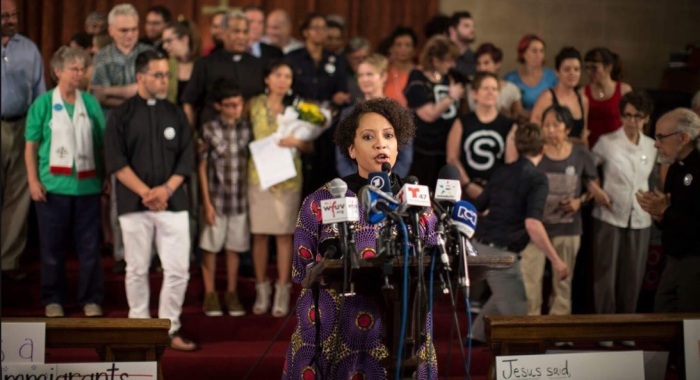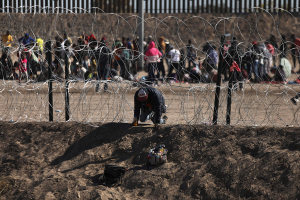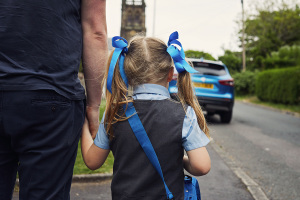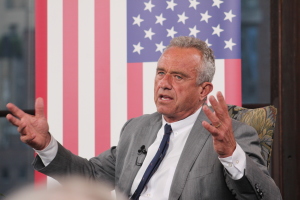Border agents unlawfully targeted pastor ministering to migrants in Mexico, judge rules

The federal government wrongfully targeted a United Church of Christ pastor for having a ministry that benefited migrants and refugees at the Mexican border, a court has ruled.
The Rev. Kaji Douša, the senior pastor of The Park Avenue Christian Church of New York, affiliated with both the UCC and the Disciples of Christ denominations, won a legal victory against government officials she accused of interfering with her ministry to migrants and refugees.
In a ruling issued last week, Trump-appointed U.S. District Judge Todd W. Robinson concluded that border patrol officials "unlawfully retaliated against" Douša for exercising her First Amendment rights, "violated her Free Exercise right to minister to migrants in Mexico" and violated the Religious Freedom Restoration Act.
This included CBP Branch Chief Saro Oliveri sending an email in December 2018 to the Mexican government encouraging their immigration authorities to deny entry to Douša and several other people.
"Dousa's ministry to migrants and speech concerning U.S. immigration law and policy constitute 'constitutionally protected activity,'" wrote Robinson. "Oliveri's email to the Mexican government would chill a person of ordinary firmness from continuing to engage in Dousa's protected activities."
"[T]he Court concludes that Dousa's constitutionally protected activity was a substantial or motivating factor in — at the very least — Defendants' decision to email the Mexican authorities."
Douša's troubles with CBP began in November 2018 after Border Patrol caught a Honduran woman trying to unlawfully cross the U.S. southern border. The woman told agents that she had been at a migrant camp in Tijuana. The Honduran woman claimed that Douša told migrants at the camp that getting married would help them in their quest for legal status in the U.S. She also claimed that she was forced to marry another migrant even though she had a husband back home.
That same month, Douša performed marriage ceremonies for 17 couples. The pastor contends that she interviewed all the couples before marrying them, and they were all common-law married in their home countries but didn't have paperwork to verify that fact. As the Trump administration pushed hard for border officials to crack down on illegal immigration, Douša testified that she believed that being married would "offer the chance for families to stay together once they were taken into immigration and detention."
In January 2019, Douša visited Tijuana again to engage in ministry work but could not use her trusted-traveler Global Entry status, which provides expedited entry into the United States from other countries. Although the court concluded that Dousa's Global Entry privileges were not revoked, "the December 10, 2018 email has accomplished the same end result."
"Dousa credibly testified at trial that she had never 'address[ed] a crowd of migrants in Tijuana and t[old] them that if they got married, they would get papers to live in the United States,'" the judge wrote. "She also denied that she 'ever t[old] anyone in Tijuana in any setting that if they got married, they would get papers to live in the United States,' they 'would get marriage certificates to facilitate their political asylum claims,' or she ever 'forced anyone to get married.'"
In a statement published by the UCC on Tuesday, Douša said she was "humbled and full of gratitude for Judge Robinson's thoughtful ruling in our favor."
"To be the prevailing party in a lawsuit against the most powerful government in the world, quite honestly, feels like a miracle," said Douša. "With this decision, I see the hand of God bending the arc toward justice."
"Judge Robinson vindicated what I knew to be true all along: my own government didn't like who God called me to serve, so they did everything they could think of to make that nearly impossible for me. This righteous ruling gives me the chance to get back to my ministry unimpeded by government intervention."
In July 2019, Douša filed suit against the U.S. Department of Homeland Security, the U.S. Immigration and Customs Enforcement, and assorted government officials in the U.S. District Court for the Southern District of California.
The litigation stemmed from a January 2019 incident in which Douša was detained and interrogated by border security after working at a mobile clinic in Tijuana aimed at helping migrants.
Additionally, government officials tracked her activities in New York, such as her participation in events and vigils surrounding immigration advocacy, and added her to a covert government database of figures involved in work with migrants as part of "Operation Secure Line."
The lawsuit argued that these actions on the part of the government "has diminished attendance of migrants at church services she leads, depriving her of the ability to minister to her congregation and the community at large."
"By targeting Pastor Dousa for surveillance, detention, interrogation, and other adverse actions on the basis of her Christian ministry to migrants, refugees, and those who provide them aid and sanctuary, Defendants' actions violate the First Amendment and RFRA," read the suit.




























